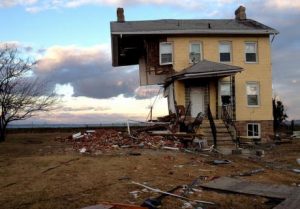
Learn about how rent control affects the landlord-tenant relationship.
If you live in a major metropolitan area in California, chances are you have run into the term “rent control”. The west coast has long been a popular relocation locale and California metropolitan areas are growing at staggering rates. California has seen an incredible population and development increase in recent years. While these increases can mean big gains for big businesses, it is often at the expense of middle income and low income renters.
Companies like Air BnB have put additional pressure on the rental market as investors are taking properties that used to be rental units and positioning them as short term vacation rentals instead, removing viable rental properties from an already scarce rental market.
The fact is, in areas like San Francisco and Los Angeles, it can be very difficult to find rental housing, especially at an affordable rate. Thankfully, legislators in many areas foresaw the need to protect renter’s rights and instituted rent control laws.
What is Rent Control?
Generally speaking, rent control or rent stabilization consist of the ordinances that limit or prohibit rent increases and the procedures a landlord must follow to increase a tenant’s rent or to evict a tenant. Because rent control is adopted and enforced by local municipalities, there is no standard definition of rent control; each community can write their own rent control laws. Rent control usually applies to properties of 2 units or more. Each community’s ordinance is different.
About Eviction
For example, some ordinances require “just cause” evictions. Under these ordinances, the landlord must state and prove a valid reason for terminating a month-to-month tenancy. A landlord cannot terminate a lease for the sole purpose of renting it to another tenant at a higher rate. Other cities do not have this requirement.
About Rent Increases
Most rent control laws will specify regulations regarding rent increases. Some cities have boards that have the power to approve or deny increases in rent. Other cities’ ordinances allow for a certain percentage increase in rent each year.
Because of recent changes in State law, all rent control cities now have “vacancy decontrol.” This means that the landlord can re-rent a unit at market rate when the tenant moves out voluntarily or when the landlord terminates tenancy for non-payment of rent.
Is Rent Control a New Idea?
No! Many rent control laws were initiated in the 70s as a response to the rapid increase of rental rates in metropolitan areas. Local authorities determined that if increases were allowed to continue, many people would be unable to pay their rent and displacements would occur. These hardships disproportionately affected senior citizens and persons with fixed or low incomes. Rent control laws were instituted to protect tenants from unreasonable rent increases while also recognizing the landlord’s need to have sufficient rental increases to cover maintenance, increased cost of operations, and to encourage capital improvements.
Many communities today are looking to adopt new rent control regulations where previously there were none. In California, the technology boom in Silicon Valley has created something of a housing crisis where speculation and development have been driving people out of their homes. Communities are seeing a rapid increase in population and struggling to maintain a balance between safeguarding current residents and encouraging economic development.
What Areas Are Rent Controlled in California?
Many communities in California have been successfully operating under rent control laws for years. The following is a partial list as local regulations are subject to change. Contact your local housing administration to find out if your area is subject to rent control.
- Berkeley
- Beverly Hills
- Campbell
- East Palo Alto
- Fremont
- Hayward
- Los Angeles
- Los Gatos
- Oakland
- Palm Springs
- San Francisco
- San Jose
- Santa Monica
- Thousand Oaks
- West Hollywood
What is Rent Control NOT?
Unfortunately there is a misconception that rent control is allowing the government to set the rental rate of a property. The fact is, a landlord can set the rental rate of a vacant unit to any amount. This can mean market rate, below market rate, or even higher than market rate. The restrictions regulate the amount and/or frequency of rental increases, and protection against arbitrary evictions (in most cases).
Is My Community Rent Controlled?
A rent control ordinance may change the landlord-tenant relationship in other important ways besides those described here. Contact your local housing officials to find out if you live in a city with rent control. You can also find out about rent control ordinances (if any) in your area at your local law library or by requesting a copy of your local ordinance from the city or county clerk’s office. Some cities may even post information about their rent control ordinances on their website.





0 Responses
I think this is a really good thing. It’s nice that landlords can’t just kick you out so they can rent to the next person who is willing to pay a little more. It’s good too that they can’t hike your rent way up. Laws governing rent control should be more widespread.
That doesn’t really happen in my country since your house is in risk when you have tenants in it.
I agree with you. I also experienced renting a small room for a rent that is expensive for the space. The landlord is an accomodating person, eventhough its expensive I grab it because of its location. We don’t have a written agreement but we got along well. Sometimes it only takes a good dealing towards landlords.
Rent control is a great thing, in my opinion. It’s helped keep cities affordable for seniors and low-income residents. Rent is going up to unreasonable amounts in San Francisco, and the surrounding cities are feeling the effects. I think rent control helps keep our neighborhoods healthy and diverse, and keeps rents from going far higher than they should.
That’s some good info, indeed.
I have heard things from both sides of this one, and now that I think about it has been a long time going too, which makes me think that this is one of those things that will always be there and up for debate. It is not really something I have to deal with, but it is interesting stuff.
A rent control is very important for the tenant and landlord because this will serve as their assurance from one another that they will get along fine in every month or years to come. There must be an agreement from both sides to freeze rent increase and terms of eviction.